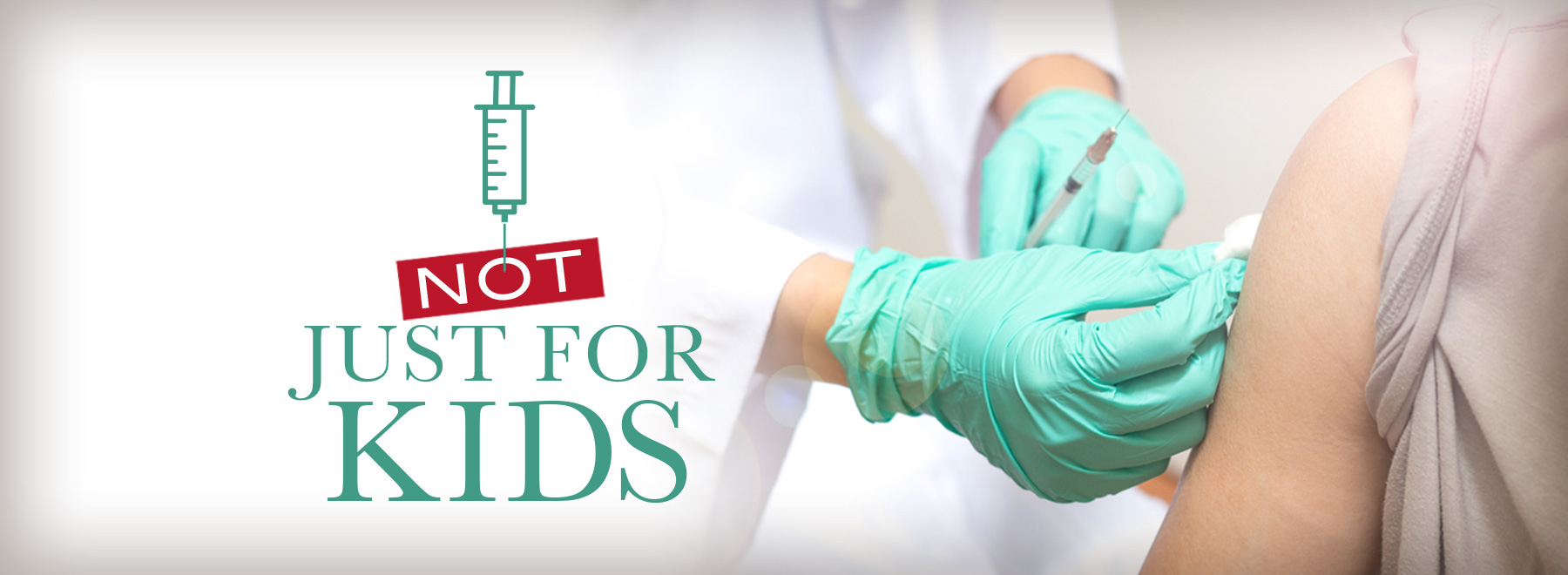Keeping current with immunizations is good for adults, too
Even before students begin their freshman year in college, they usually have to cough up immunization records before they can start classes.
That doesn’t mean they’re through with their shots.

“Most people received their shots when they were kids, and they get the feeling that it’s enough and that they’ve had all that’s required,” said Dr. Bhagyashri Navalkele, assistant professor of infectious diseases at the University of Mississippi Medical Center. “It’s very important that adults know what shots they should have to prevent infections and stay healthy.”
According to the Centers for Disease Control and Prevention, thousands of adults become seriously ill or are hospitalized because they lack vaccinations that could have prevented them from getting sick. That’s in combination with some childhood immunizations that can wear off, leaving the vaccinated person vulnerable as an adult to maladies such as whooping cough or measles.
Some adults, though, shouldn’t get certain vaccines because of existing health conditions or cancer treatment, said Navalkele, who suggests consult your physician to be sure.
Vaccines the CDC recommends adults to have include:
• Seasonal influenza – Getting one vaccine every year is the best way to reduce the risk of flu and the severity of its complications.
• Pneumonia – Adults aged 65 and older who are otherwise healthy should receive two separate pneumococcal vaccines at least one year apart – PCV13 (pneumococcal conjugate vaccine) followed by a dose of PPSV23 (pneumococcal polysaccharide vaccine). Each of the drugs protects recipients from particular strains of pneumococcal bacteria.
“These are important because the most common infection in the elderly population is pneumonia,” Navalkele said.
The two-pronged vaccine also protects against meningitis. Adults younger than 65 who have specific health conditions or who smoke cigarettes also could need one or two doses, according to the CDC.
• Shingles – Known more formally as herpes zoster, shingles is most common in older adults. The CDC recommends healthy adults aged 50 and older get the vaccine in two doses about two to six months apart. The vaccine Shingrix provides greater protection than Zostavax, which remains in use for some adults aged 60 and older. Protection offered by Shingrix lasts about five years.
“Even if you’ve had shingles before, it doesn’t mean you can’t get it again,” Navalkele said. “It’s important to receive Shingrix and get protected.”
• Chicken pox – Adults who didn’t have chicken pox as children can certainly get it now. It’s recommended they receive two doses of varicella, the chicken pox vaccine, four to eight weeks apart. For those who had chicken pox as children, the virus can remain inactive in nerve tissues but reactivate later in life and result in shingles or a second case of chicken pox.
• Hepatitis A and B – For adults who have never been vaccinated for Hepatitis A and B, there’s a combination vaccine that prevents both viruses via a series of three injections, with the second dose one month after the first and the third dose six months after the second.
• Pertussis (whooping cough) – The one-dose vaccine known as Tdap (tetanus, diphtheria and pertussis) should be received by women during each pregnancy and once for adults who haven’t previously received it. It’s especially important for adults to be protected against pertussis, although being up to date on tetanus booster shots also is a good idea, Navalkele said. She and other providers often encourage adults who need a tetanus shot to instead get the Tdap for added protection.
“You have to make sure that grandparents or caregivers of children have had their immunizations so that their children will be protected,” Navalkele said. “Tdap is more important. We can all get a cut or injury, but likely won’t get a serious tetanus infection. Pertussis can be a serious infection and is easily spread to others.”
• Measles – People born during or after 1957 who do not have evidence of immunity against measles, such as written documentation or laboratory evidence, should get at least one dose of the MMR (measles-mumps-rubella) vaccine.
Adults should also consider protection from human papillomavirus, which can cause cervical cancer in women and a number of cancers in men. It’s recommended that women up to age 26 and men up to age 21 receive the multi-dose vaccine, in addition to men ages 22-26 who have sex with men.
Some colleges require entering students to get the one-dose vaccination for meningitis, which spreads quickly in crowded conditions, such as in a dormitory.
And depending where you travel, adults might need vaccines for diseases such as yellow fever, cholera or typhoid fever. Ask your provider for guidance if you’re planning to travel abroad.
“With travel comes increased risk of being exposed to infections that you should be protected against,” Navalkele said.
The above article appears in CONSULT, UMMC’s monthly e-newsletter sharing news about cutting-edge clinical and health science education advances and innovative biomedical research at the Medical Center and giving you tips and suggestions on how you and the people you love can live a healthier life. Click here and enter your email address to receive CONSULT free of charge. You may cancel at any time.



